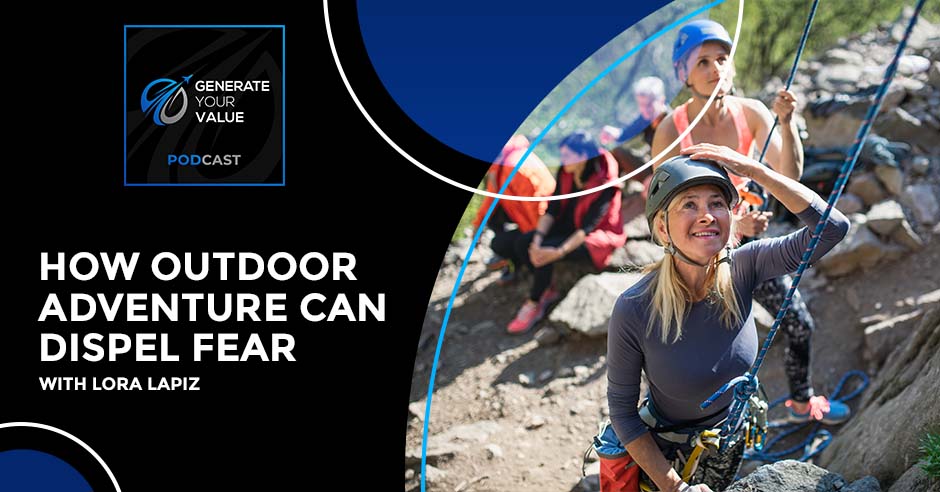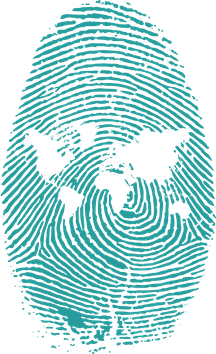Fear is a powerful inner foe. It can stop you in your tracks, push you to hate yourself and drown you in negative feelings. For Lora Lapiz, the thing that saved her from getting consumed by fear was going on an adventure. In this conversation with Andy McDowell, she shares how the outdoors allowed her to get over the deaths of her loved ones, overcome her suicidal thoughts, and heal herself by understanding the neuroscience and biological aspects of human behavior. Lora also opens up on the role of rock climbing and international travel in appreciating her life and accessing infinite possibilities in writing her own journey.
—
Listen to the podcast here
How Outdoor Adventure Can Dispel Fear With Lora Lapiz
From what I know, this is going to be an amazing episode. I say that because I know the person on the other side of the table for me, so to speak, is an amazing person. The more time that I spend with her, the more she truly, I hope she doesn’t take this wrong, is like an onion. You keep peeling the onion back and you find more and more about her. Our exercise today on our episode is going to be a little bit of peeling some more onion back on who she is. My guest is Lora Lapiz.
Lora Lapiz defies logic through Open-mindedness, curiosity and possibility. Her unconventional methods and uncanny style pinpoint core root issues and synergies with laser precision, leaving doubt, control, hesitation and apprehension behind Lora explored, worked and played in over 35 countries across 6 continents. She even climbed a 17,000-foot mountain tasting the richness and fullness of life.
Her dynamic experience draws academics to private industry, nonprofit, public-private partnerships, high-level government policy and entrepreneurship. Lora sage wisdom navigates the most unusual circumstances from White House meetings to paddle boarding near waterways. She identifies a clear, certain and opulent path forward. Loira has a Bachelor’s in Neuroscience from the University of Scranton and a Master’s in Public Health from John Hopkins. She guides visionaries and pioneers to align their intuition, energy, and priorities into a new way of being while operating in a fast-evolving world. Before I bring her in, I want to read to you some of the things that she has achieved in her life.
You’re only getting a snippet of who she is. We’re going to peel her back a little bit more as an onion to get to know her even more. Lora traveled across Asia for three and a half months. She scaled a 70,000-foot mountain in Ecuador. She identified the root cause of a physical illness, that she had that traditional doctors could not identify in 2018 and healed herself on her own. She organized a successful international policy round table discussion with the White House National Security Council, assistant to the President and Director General of an international governmental organization, and 14 US departments, which led to a $1 billion initiative.
She conducted over 25 clinical research trials and studies, coordinated scientific writing and budgeted for a $100 million grant received for a nonprofit. She supported eight public-private partnerships across China, Kenya, Mozambique, and Australia. Where do you go from here? I thought I achieved a few things in life, but my list isn’t even close to this. With that being said, Lora, welcome to the show. I can’t thank you enough for taking time to spend with the community, share your wisdom and help us out on a few topics.
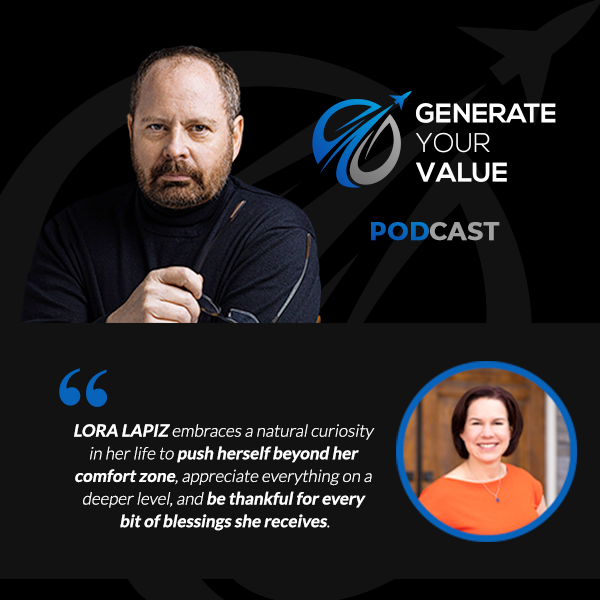
Truly, it’s an honor to be here, and to serve your audience and bring the message out that is ready to come out. Thank you so much. I appreciate you.
Looking Back
What I typically like to do in the beginning is to allow some time for the guest to fill in the holes within the bio. Pick a time on your timeline, I don’t care if it’s when you’re 2, 8 or 22 years old and fill in the gaps for us on your journey. What were you thinking along your journey? Why do you make certain choices like a Bachelor of Neuroscience and going to Johns Hopkins?
Where best to start is my childhood was rather interesting in the fact that grief was a major theme. I lost my father at the age of 11, and then I lost my best friend at the age of 17. A lot of my childhood was spent in depression. I was young. I did not have the coping skills that I needed. The psychologist was put on psychiatric drugs. I was suicidal, yet at the same time it’s like when you lose your father and then you finally recover and then you lose your best friend, you have this almost constant like, “Who am I going to lose next?”
I realized that I’d always been very curious that I did not commit suicide. To be honest with you, I didn’t like psychology. I did not like being put on psychiatric drugs, but I was very curious about why I didn’t commit suicide, and yet other people did. Remember this was decades ago. This isn’t even the current, almost epidemic that many in the mental health crisis that we’re going through right now. My curiosity was not to go on the psychology side, but to go more on the neuroscience side and to understand the biological basis of behavior.
That’s what drove me to neuroscience, which by the way, back then, it was the decade of the brain. I was learning neuroscience when they discovered you could regrow neurons. It was night and day. It wasn’t even in the textbook yet. This constant curiosity to understand what is more than a biological basis changed everything for me. I wanted to go get a PhD. I was going to do all this. I have to admit, the first time I burned myself out was in college.
I was a research and teaching assistant. Let’s be real, this is when the overachiever in me started. You’re trying to do all this amazing stuff, but I already burnt myself out. I was like, dude, “Spending six years to go get a PhD didn’t make sense.” I took a step back and said, “Where do I want to go from here?” That’s when I started a job at a methadone clinic of all things in downtown Baltimore to see and put my neuroscience in this understanding of how you design clinical trials, how you look at the statistics and so forth, was very intriguing for me.
I was analyzing DSM-IV data, which is the diagnostics statistic manual of how you diagnose psychiatric and mental disorders. I was analyzing this data in relation to people who had heroin addiction they usually had multiple other addictions. It was this design and study. That’s what led me to public health. My Public Health degree has more of a specialization in epidemiology, how you design studies, how you analyze studies. What drove a lot of this is that my father died of lung cancer at the age of 49, very young. It brought me to this point of, “Why did he die young? Why do some people die young from smoking versus other people live to be 90?” It was this constant curiosity of prevention, treatment and how can we do things from a different stance. Did you ever play Where In The World Is Carmen Sandiego?
Not as a video game.
For those who may remember, Where In The World Is Carmen Sandiego? is all about where this one particular person and you had to use an almanac in geography and figure out literally where in the world. You had to look up like history stuff, statistics on like cities and where different history stuff. Somehow because of that, I wanted to start traveling. After college I had this curiosity of like, “Let’s go travel abroad.” I dragged a friend of mine to Europe and we backpacked around Europe by ourselves right after college. I have these many tracks that have this common theme of curiosity. All of a sudden when I got to experience what it was like to be in France, Italy and Switzerland, cultures were different. They don’t act like us.
They have their own way of being. They have their own things that are important to them. I had this epiphany that even though I went through all this death, tragedy and childhood, this light bulb went off right at the end of my college years like, “Life is short and it’s here to be lived.” It’s easy to get tied into all these different things going on in your life, but when you go back into, “None of us can ever predict when we’re going to die.” When you lose people at a young age, you realize like, “Life is short.” I started this theme of like, “Go travel. Go do these other things. Go explore.” I was an introverted person or kid.
Life is short and it is to be lived. It is so easy to get tied into different things in your life. Click To TweetSome of the people now think I’m an extrovert. I was like, “No.” I’m like, “I’ve had decades of practice now.” You and I talk easy, but if you knew me in my early twenties, it is a whole different story. To purposely put myself in positions where I had to talk to people, I had to navigate countries where I couldn’t speak the language. This was before smartphones and all that jazz that everybody now gets to navigate. You looked at a map and you had to figure out how to go. You had to match the words, you didn’t know what they were to the words on the map and you had to figure out how to get there. It was the fun of the international travel was more like, “How do you get from point A to point B? I don’t know if I’m taking a train, an automobile, a boat and so forth.”
Achieving Joy
You gathered a sense of adventure. Let me take a step back. 2 deaths before you hit the age of 20, instilled in you this notion that life is short. There’s no guarantee that you’re going to live another day. You have that instilled in you, then you go to college and start backpacking for the first time, which a good number of college students do, go hit Europe for 3 or 6 months before you set your sights on, “Let’s get all my life.”
As you’re doing that, you’re looking, seeing different cultures and your mind is expanding from the standpoint that, “This world is much bigger than I thought it was, or at least that I’ve experienced,” from that standpoint that those are like the cornerstone events in your life that set the stage for where you went from there. How are we making decisions? The whole brain piece and decisions. It’s a short life. What kinds of things are the brain dealing with? How is it that we can do things in life that are going to bring about joy and happiness in this “short time” that we have on Earth? Am I in the dartboard somewhere with that?
You are. One of the other areas is once I hit my mid-twenties, I got out of a long relationship and realized that when you’re familiar with depression, it’s easy to stay isolated, to yourself and so forth. I realized that I needed to make a new group of friends. I’ve always enjoyed just, being outdoors. I was an unathletic kid. I wasn’t involved much with anything. I took it upon myself. This was long before a lot of social media ever existed and found an outdoor club that I enjoyed. I started hiking and then the hiking then led to a weekend where I went rock climbing and water rafting. I was like, “These are two other things that are like cool that will.” I realized I had this love of the outdoors in nature.
It was peaceful, relaxing and in complete retrospect that nature has such a healing ability to calm your nervous system, to get you grounded and centered in your body. It’s only looking edits from years later that I go, “That was such a pivotal thing I did. I didn’t know why I did it. I didn’t even know why I loved it so much.” When I started looking back on it, I go, “This is what relaxed me during tough days at work and on the job and very intense hours, was this peacefulness with nature that brought me outside that I could do both from making it enjoying to where I chose to allow myself to keep testing my limits.”
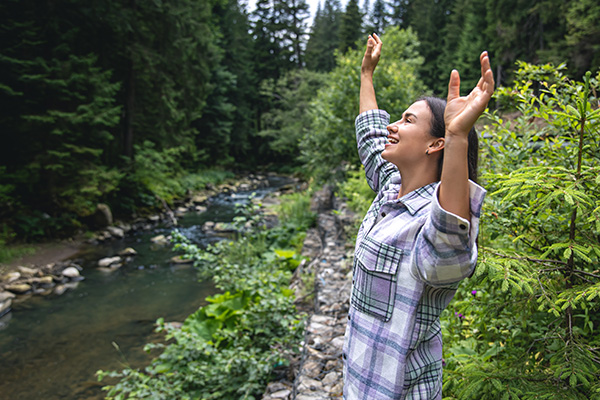
It’s funny. It’s the scientist in me that I always say, “I started hiking and it was 3 miles and then it was 5 miles, and then it was steeper, and then it was longer.” The next thing you know I added rock climbing and mountaineering. This didn’t happen overnight, but it was this constant, “What were my actual limits?” All I know is every time I hit a ceiling, there was something that allowed me to go beyond it. That’s how I ended up climbing a 17,000-foot mountain.
Rock Climbing
We talked from a self-leadership perspective. You came to start to understand some things about yourself. You had a natural curiosity about life. From the standpoint that you wanted to understand why it is that your dad passed away from lung cancer while others were able to keep persisting with the same conditions to your own depression and suicidal thoughts to, “Why is it that I like nature and being outdoors?”
I know from our own personal conversations that you started discovering and that you have a radar. You’re sensitive to certain things and inputs. When you’re a teenager, your father dies, your best friend dies, you’re dealing with grief, you’re dealing with depression and so forth. I have to imagine you feel like life is a fire hose like a fireman does. You got this fire hose that’s aimed at you and somebody went with a valve and turned it on, “Whoosh.” Life is coming at you from all types of emotions, and grief brings everything at once, and it takes you these not seasons, but these phases to get through all those emotions that you’re feeling to resolve them to a point where you feel like you can continue on life in a joyful and happy way. That big antenna of yours is twice as much what most people go through when life is throwing that firehose water at you.
It’s very interesting because when you have that type of early aspects of life, abandonment and so forth, your subconscious is always like, “What’s the next shoe that’s going to drop?” One of the more interesting aspects is that rock climbing’s not a sport that most people get into, it’s way more popular now, but decades ago, there weren’t a lot of females that were in the sport or at least the people that I was surrounding doing it. The biggest part of rock climbing is learning to trust yourself because the only person and the only way to get up the rock is for you to move your body and trust yourself to make the move. I do always climb my with ropes. I’m not Alex Honnold. I have met the guy.
The biggest part of rock climbing is learning to trust yourself. You are the only person to get up the rock. You have to move your body and trust yourself to make the move. Click To TweetYou have to trust the person on the other side of the rope. When you fall, there’s going to be a net and there’s going to be something that’s going to catch you. The biggest gift I received from rock climbing,was learning how to trust yourself, how to be in your body and simply breathe because you have four points of contact, your hands and your feet. You have to simply breathe. When we think about our days of being stressful and too much stuff going on, it’s that basic. Go back to your breath, can you feel your fingers and your toes? Then you have all the contacts.
I have to imagine that what that process does is it helps to bring focus. I’m sitting here listening to you talk and picture myself on the side of a mountain, four points of contact in the breathing and forth is instead of living in your mind and maybe to a certain extent, your heart with this fear that’s running rampant as energy through your body that what the grounding does to refocus on your hands, feet and your breathing is somewhat of a distraction from all of these thoughts that are firing off in your brain about what the possibilities could be in terms of danger.
I have a fear of heights. It’s usually everybody’s first excuse to not go rock climbing. I go, “I have it too.” Literally, if I was very high up on a rock climb, hundreds of feet in the air, I blur my periphery I’m very focused, but I’m also very much in tune with my body. Rock climbing essentially taught me to feel again, because when you have all this stuff that happens as a kid, and you do have all these extra central abilities, the first thing you want to do is not feel because feeling’s painful.
The rock climbing allowed me in a different way to get back in tune with my body and say, “It’s okay to do these new things.” You can go at a pace that works for you. When you simply breathe through it, you get through those harder obstacles, people are patient with you, you’re more patient with yourself and it’s a level of presence that is truly incredible.
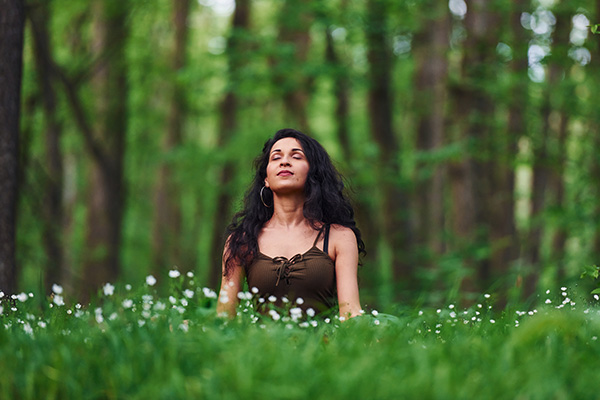
I went through the same thing. Certainly, it doesn’t mess you up even close to rock or mountain climbing, but learning how to play the guitar on my own, learning the art of patience, being present and breathing, knowing that I’m not going to be Eddie Van Halen the next day like you’re not going to climb the 17,000-foot mountain in an hour on your first trial. It’s about being in your body, breathing, being present, and spending time with the mountain, instrument, or whatever it may be to get past the feelings of fear, shame, judgment and all these other things. These rabbit holes that we like to go down in life set us back or stop us in our tracks from living a life that’s full of possibilities.
Life has many infinite possibilities we can achieve anything that we want to go after. When you learn how to laugh at yourself when these funny things happen, life becomes different. Dropping that is we have to learn how to have fun in the moment. That’s what so much people are missing. They want to achieve. They want to go from A to Z and they forget that it’s a process. It’s a journey, to have fun and to make it playful and just enjoy.
Let me tell you, rock climbing is not always easy. If you want to know the times when you end up with a ball of rope at the top of a climb and it’s all tangled, it’s the most common thing that happens among, inexperienced climbers and even experienced climbers, making sure you get to the top of a climb and things aren’t all nodded up. You have to sit there, laugh and go, “How do I do it differently next time?” It’s adapting and practicing, and you slowly get better. I didn’t take the fast route to become a mountaineer. It was slow practice over time.
Technology In Life
Where we sit in this world with technology being available, instantaneously, I can pull out my phone, I can push a button, hit an app, and everything’s right there for me. The way people’s minds are framed is that everything is instant gratification because, “The world is at my fingertips,” per se. We’re losing that art of the fact that life is a journey. Maybe the tasks of life have gotten a lot faster because we as humanity have gone out to develop technologies that help us with the tactics of life.
We haven’t done anything yet that tackles the fact that. life is a journey. When it comes to relationships, whether they be a business relationship or a relationship with a spouse, kids, your neighbor, or whoever it may be, these are the greatest teaching tools for us in life and even the advent of dating online hasn’t moved us. I could say this and laugh at it in life because I’ve been in that experience for the last many years of online dating. I don’t think technology has moved human beings much further along the evolutionary path from online dating to instant gratification. I’ve got all these men or women right at my fingertips who live in my city. We still have to learn these tools and use them throughout life even though some aspects of life have gotten faster, better and cheaper.
It’s one of those things that technology certainly helps us to be productive. At the same time, it doesn’t build that heart-to-heart and human-to-human. I’ve heard some people say that H2H experience. The fact that when we have that heart-to-heart experience, which it’s very beautiful and amazing when you do take a fall and if you’ve ever taken a 20-foot fall on a rock climb, you’re a little like, “Whew.” It takes the breath out of you, but you have such a bond that you can trust that person. When you think of online dating, until you have that experience with that other person, you don’t know how they’re going to react, respond and be until you have those heart-to-heart moments, conversations and laughs together.
It’s always that curiosity. If we can always approach things from curiosity instead of judgment, which is something I still have to work on because it’s very easy to be judgmental about other people and other people’s opinions and who’s doing this and who’s doing what, it’s like, “Be curious,” because that’s what helps build that bond. That’s what from international travel, you find out what’s important to other people. It’s okay if something is more important to you than important to me and be okay with it.
Fear And Adventure
I want to get back to this, dynamic between fear and adventure. Is using the “art of adventure” a way to help people look at the possibilities and the fact that you can get out of their comfort zone, explore and be curious about the possibilities of what one can do? I’ve gotten over it. I’m mature, as a human being, but in my early years when I was having all my self-esteem issues, I was a big worry ward. When you have fear or worry about things, that can be a roadblock to this curiosity and this dreaming and thinking of the possibilities and this thought of abundance for life in the world and everything. One has to overcome and the foundational feeling or energy, if you will, to all this worry and so forth, is fear.
We’re going to take an adventure and be curious about what you person can do with this sense of adventure hopefully you start developing a mindset or a practice through your courage in doing this adventure, start gaining some confidence in yourself that if you dedicate time to this journey of this thing that maybe you don’t know anything about it, you’ve never experienced it, and that’s what’s holding you back. If you can take a bold and sprinkle in some curiosity, courage, skills and talents that maybe you don’t even know you have, but you do you won’t discover that until you go try it and mix it all up in a bowl that you come out of the experience going, “That wasn’t so bad. I learned something about myself.”
It was a journey. I’m not afraid of going on a journey now. My first 10 steps on that mountain didn’t go very well, but I kept at it and tried to learn from those first 10 steps how to do it better this journey is a journey of lessons and integrating those lessons into the journey, that, “I could use this in other areas of my life?” No, don’t say it so.
I love how you pulled all that together because it’s not just these logical steps. When you take that time to go do something new and you have the courage to go do something new or explore something you already know at a deeper level, maybe it’s playing the guitar, but maybe it’s learning to play the banjo. It’s going to have a different style and feel to it, even climbing. I rock climb. It’s not the same thing, but it has elements that run through it that when we start to learn about ourselves, we get these big a-ha moments that start to translate into other things in our lives. Because I was adventurous and did all these outdoor adventures, but also traveled the world. that’s what made my work life.
When we start to learn about ourselves, we get big a-ha moments that will eventually translate into other things in our life. Click To TweetI was able to go do things that were presented to me and I didn’t collapse into utter fear paralysis that all of a sudden you’re presented with something from a work stance. You’ve never done it before. Being like, “If I can figure out how to rock climb, I can figure out how to do this.” It’s taking those little steps. I think we see that big picture and you’re like, “I want to get to the top of the mountain, but it’s a series of steps.
This quote, “What holds us back is the pebble in the shoe on our journey.” When we figure out what that pebble is in that journey, and we can release that pebble and we continue to learn about ourselves, it unravels a whole new set of capabilities that you never knew you had. I never had a goal of becoming a mountaineer or a climber. I wanted to travel the world internationally once a year. I didn’t know what countries, but it was that aspect. The whole idea is when we start to figure out those aspects about our ourselves, as we go on this adventure and journey, we start applying it to every other area of our life and it becomes much easier.

Adventure With Lora
It’s about the roadmap. Take me through what an adventure with you would be like. There’s the actual physical adventure. You and a client have to physically get the right equipment and go find a mountain somewhere and climb. There’s that whole aspect of the physicality of getting yourself up the mountain.
As you’re climbing that mountain, are you having these life conversations at the same time or, “Let’s get you off the mountain first and learn some things about mountain climbing,” and then have discussions about, “How can we take the experience you went through and start translating that or integrating that into other areas of your life?” How does that go for you?
The key part is even before you step foot on the mountain, is to assess where you are and to even understand your own capabilities because the funniest thing most people say is like, “What type of training do I need to do all of this?” It comes across as I need to showcase that I’m better than everybody else. It almost comes across as that achievement factor versus where people normally get stuck is the fact that, and this is what I love about more of climbing and/or mountaineering, it’s endurance and sustainability.
It’s not you go 50 feet and you’re done. A day in the mountain can be 14 hours or even longer. It all depends upon what you’re doing and trying to go for. The question is, “Do you know how to fuel your body? Do you know what’s important to you? Do you even know what your objective for the trip is?” Believe it or not, a lot of people don’t even have the same objectives on a mountaineering team. The first thing that you have to do is to start to have to figure out what’s important to you. Most people can’t even answer that question.
Does the end result matter in the effort?
It doesn’t.
Let’s say you’re hitting a 12,000-foot and your client may have to do some testing, if you will, with endurance, but let’s say they only make it up halfway or three-quarters of the way. Do you find some people still get on themselves because they didn’t make it to the top because they’re achievement-oriented as opposed to realizing that it’s about the journey and it doesn’t matter whether you made it to 5,000, 8,000 or 12,000? It’s about what did you learn from this.
The biggest thing that you set before you ever say is, “What is the goal? What is the main objective?” I’ll never forget, that after I went through a lot of health issues, I reached out to some girlfriends to go hiking. I said, “What was our objective? To get to get to the top?” They go, “We just want to have fun. We want to be outside. If we make it to the top, great, but if any one of us decides that we want to turn around, we support them. Understanding what goes into the decisions ahead of time is helpful.
If you on a workplace basis, don’t know what’s important to your team members and what is their go, no, no-go decisions, when things start getting hard and rough, it’s going to change everything because there are times when my first time climbing Mountain Rainier, we turned around 400 feet from the summit. We went an extra 100 feet. People were like, “You were close.” We were going so slow that the calculated risks weren’t safe for us to go an extra 400 feet and come down with a storm approaching in white out conditions.
It’s making calculated risk decisions. When you are with other people on a team, what is that calculated risk you’re willing to do? Some people are okay with losing fingers, toes and so forth. Everybody is different, but do you have these discussions ahead of time or are you having them after a twelve-hour day and you’re tired, hungry and you are dealing with all types of environmental conditions, which by the way, when you’re wet out and you’re exhausted and you’re hungry and you haven’t had enough water, you’re not at the top of your game. The question is what are those key factors before you even start so that when you do hit them, you have an understanding of where you’re going to go?
Risk Management
I’ve always felt like one of the biggest skills that you can develop in life is this whole notion around risk management. In the business world at least, as somebody who led a business within a company, risk management was a big part of what I dealt with every day. You got a bucket of money that the company’s given you to go build this business, and you have to assess different risks that you’re going to face, whether it be for their overall business or a specific project involved with a customer or whatever it may be.
It all translates over into life and other aspects of business as well. I don’t know if that’s at the forefront of a lot of people’s minds as they go through their day-to-day tactics of executing on a day and are thinking about risk management. Are they being a good evaluator in risk management? You may think, “That’s a huge risk.” When the reality is it isn’t. It may be an elephant and you have to abide it at a time. It may take you a little bit longer, but if you have a good plan and stay attuned to what the risks are as you’re going through it, you’ll get through it. Just know where your exit ramps are. If it gets to a point where the risk is too high for you, hit the exit ramp, but know where that is and build that into your plan before you start the journey.
It’s the funniest thing, even with rock climbing, is teaching people what I’ve learned, even the basics is sometimes going up isn’t hard. It’s learning to sit in your harness and trust the rope to come down, sometimes, especially with kids. I’ve loved taking my nieces and nephews, but I teach them how to sit in the harness and trust the rope before they ever go up and get them about 2 feet off the ground, ask them, put their feet on the wall, sit in the harness and trust the rope and it brings that level of comfort. When you start looking at these calculated risks, and you start to understand that, the question is, “How are you also applying that to yourself?”
Bringing up self-leadership, “What are those calculated risks for yourself? When is pushing your body and working too many hours in an unsustainable way because you’ve been doing it for months, not a specific couple of days or a month, or having that specific timeframe? Where are the calculated risks not being looked at?” People go, “Rock climbing is scary.” I go, “Do you know what’s more dangerous than rock climbing? Sitting on the couch and watching TV for two hours a day because you’re more likely to have a risk of heart attack and die than you are to go rock climbing.:
We sit in our cars every day, but yet the risk of an accident and maybe something, along the lines of a fatal accident is much higher than up in an airplane. It seems that much more scary. As human beings, we have reduced the risk of that happening with all the engineering work, analysis and testing, the amount of testing we did in Boeing to reduce the risk of fatal accidents in an airplane to a point where they’re much lower than being in your own car traveling down the road.
My best friend died in a car accident, and it doesn’t mean that I stopped driving. When we think about our day-to-day something bad happened or a bad relationship happened, we can’t say because of this, that this is going to happen to us. It’s hard to tease that out that it’s not a one-to-one that it is this understanding it was an event that happened, allow yourself to integrate what happened, whatever that lesson learned is, and understand you still can continue on because you and I both know as an entrepreneur, we have to face our stuff head-on with what shows up. Becoming an entrepreneur is like, “You thought you did the work,” and you’re like, “Here’s something else that popped up.”
Being Comfortable With Fear
It’s climbing a mountain and being an entrepreneur. One of the things I’ve talked to my clients about on this particular subject and it goes back to your example with your niece and nephew, is that you have to get comfortable with fear in your life. The analogy I use is you have to pretend that fear is a person and that person is sitting on a bench. If fear may look more like a monster than a human being, but if it’s some entity that’s sitting on the bench and you’re like, “I don’t want to go talk to that monster or a person,” but you got to find the courage to be able to go and sit down on that bench.
Maybe not even say a word. Just that physical closeness and presence like it’s sitting in that harness with the rope. You’re sitting next to that fear that you think the rope may give way and be dangerous. You’re sitting next to that monster or that entity that’s next to you on the bench, and it’s called fear. You’re gaining some trust in yourself that, I can at least sit with it.” I’m not talking to it yet. I’m just sitting there. Being in the presence of it.” That breath before the hands and the feet so to speak that you talked about. Just sitting with it.
Going back to the mountain climbing. I’m going to see it as a journey. Maybe I go sit down next to the fear on the bench. I’m only going to spend ten seconds with it. I’m not going to say a word, but then I’m going to get up and go away. That fear is not going to go anywhere. The fear is still sitting on the bench, but maybe tomorrow I’ll go sit down next to it, it still may not say anything, but I’m going to spend twenty minutes with it.
You’re building up that trust in yourself to deal with this thing that scares you. No matter the reasons behind it, whether it’s a trauma in your life or whatever it may be, you have this natural inclination of fear it. I’m going to do it as a journey, like learning the guitar, how to climb a mountain or whatever. It’s about spending time with it, being centered on yourself and build up resistance. Another analogy that comes to mind is my life of dealing with allergy shots and allergies. It’s that constant injecting of the allergy shot in your body to build up resistance to the point where it doesn’t phase you anymore.
It’s the same journey. I’m going to sit there next to it for a little bit without even saying a word to it, but I know it’s right there until I can build trust in myself and build confidence in myself that I can address this. It doesn’t have to be like that. It doesn’t have to be a snap of fingers. You see it as a journey assume, think or stay positive that your life is going to be a long life I’ve got this journey to address this fear, and it’s this fear that’s holding me back from the abundance about all these possibilities of what my life could be.
I love everything you brought up because when you can acknowledge that awareness, it brings something to light. It brings that fear, darkness, shadow or whatever you may want to call it. All of a sudden, it shines a light on it. I love how you said, “It’s just there.” We don’t have to like it or dislike it. I think so much people are like, “You got to learn to love it.” The thing is when you’re aware of it, that’s the beginning to say, “Here’s how to work with it.” The next step and the hardest part is accepting it. Even with death, grief or whatever, you have to accept that you may be in a situation that you’re not enjoying. Instead of fighting it and trying to push against it, that acceptance of saying, “No, this is here,” because a lot of the times, people are like, “Let’s ignore this.”
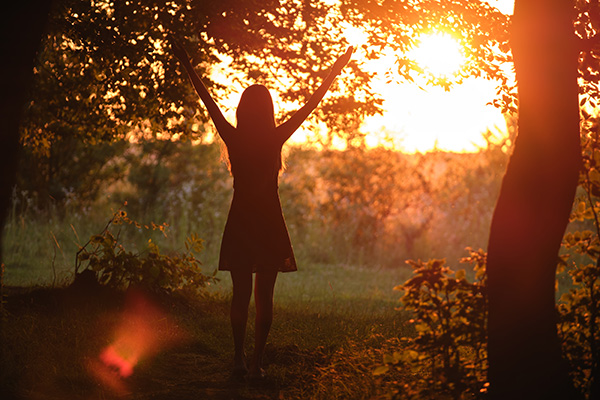
How many times do you have things that go, you feel in your body, “It’s not bad,” and then you find out there’s something major going on? We can’t just ignore it. We have to accept what’s going on, then it’s from that place of acceptance that we can do something about it. A story that came to mind was trad climbing I was following behind somebody. We were pretty a couple of hundred feet up the side of a cliff and the rock cold that I pulled on broke. I fell and the rope caught me. This piece of rock was pretty big, and I knew there were people underneath me, other climbers, and I yelled rock so loud that people told me at the end of the day, they could hear me from a half mile away
Luckily nobody got hit and so forth. I now had to accept that my one little hole to get me up. I had to somehow maneuver my body around it to finish the climb because that rock hole was gone. Where in our life are we trying to hold onto something that is no longer there and we have to figure out a different way up or around, or even through it?
Favorite Trip Destinations
What are some of the favorite places you’ve seen in the world? If you had a top 3 or 5 list, what would you put on that list? I travel quite a bit for Boeing around the world. What would be on your list?
I had a beautiful trip through Asia where I was blessed to have traveled to Bhutan and see the Buddhist culture at the time was relatively untouched. Because they restrict tourism, you could see how people truly lived, yet also in parallel, I was trekking hiking through a northern part of Nepal that had very much of a Buddhist culture to it. We participated in a Buddhist festival where the chanting and the sounds were mesmerizing. It was unreal. It was a manner that time stopped that has always stuck with me through my own healing journey because when we travel, it’s always hard for me to pinpoint, because I always say, “Do you want culture? Do you want scenery? Do you want culinary taste buds?”
It’s going to differ. Whenever people ask me that, I go, “Which one of those things is important to you?” If you’re not a hiker, you probably won’t want to take my trips. I know somebody that once went to Paris just because they loved the food and they were going to have a complete culinary experience for a week. Whether it’s what I’ve been able to experience versus what I always love to say to other people is, “What is it that makes you come alive? Is it seeing the history and the museums? Is it the scenery of being in the Himalayas and seeing these massive mountains to participating in a festival that you have ever participated in?”
I would’ve enjoyed that experience you had in Bhutan. My team helped the Chinese government open a brand new airport in the mountains of Tibet. I got to experience the grandeur of those mountains, but we only spent time at the airport. We didn’t get a chance to, to get into a village and explore the culture, food and ceremonies, or whatever they might have had. That would’ve been nice. Boyle mountains are beautiful.
Even if you think of the culinary of the Himalayas, yak butter tea isn’t necessarily something I’m going to recommend for everyone, but to be able to have that experience and say, “This is part of local culture,” is truly breathtaking in many different ways.
Closing Words
Unfortunately, the big hand on the clock says that our time is coming to a close. If people want to learn more about your offerings or you as a person, what’s the best way that somebody could reach out and begin an engagement journey with you?
Come join me at DefyLogik.com, and I would love to continue this conversation with you.
I have one more question for you. It’s a question we ask every guest. You’re no different. We’d like to see where the answers go, and what the common thread is amongst all the answers, we get to this question. That question is what do the words generate your value mean to you?
When you are fully present, you get to feel and experience worlds that you never even thought were possible. It showcases all of the infinite possibilities that exist. When we’re present, we get to also feel the possibility that most resonates with us on what to move forward with.
When you are fully present, you get to feel and experience worlds you never even thought were possible. It showcases infinite possibilities that exist. Click To TweetIn those infinite possibilities, is all the various ways that your intellect, your skills, your talents and forth can create items in a generic way that term items in the world that bring value to other people’s lives? That’s why I named my company Generate Your Value. It is about what is stopping you from doing what the universe created you for. I’m a firm believer that the universe has intentionality behind it. It’s sending you out in the world with hope, “There you go. Go to the Earth School, live your life,” and let’s see what value it is that you can create in the world that not only brings joy and happiness to yourself on the inside but also for others.
It’s that presence that allows you to feel that intention on all those different levels and to feel to what that next step is because when we are fully present and we feel what’s best to move forward, even if it’s scary, even if it’s a little like, “I don’t know what I’m about to go do,” but you’re like, “This is the next best thing.” You can step into that unknown and have faith that everything’s going to turn out.
That being said, we’re going to come to a close. I can’t thank you, audience, for taking time out of your life, that finite resource in your life called time that you were willing to make that all-important choice to spend it with us, Lora and me, to explore life in this journey. Are you going to allow something called fear to stop you from looking at the abundance that life has to offer, the possibilities that it can bring you, and the recognition that if you take a cup and pour in some courage, some curiosity, some intention and other things, and mix it up. That’s going to allow you to go sit on the bench with fear and go, “I don’t like you, but I’m here.”
I’m going to go on a journey with you to figure out how it is that starts making you this eight-foot scary monster on the bench. You become a little ant to cross around on the bench and I can go live the life that I was created for and intended for. That’s truly I believe why we’re all here. We are here with great guests, like Lora. Hit that subscribe button. Don’t miss an episode. Have a great day. We’ll see you here next time.
Thank you. It was an honor to be a part of this discussion and to serve your audience. Thank you so much for everything. What a beautiful joy to always learn more about you as well.
You’re welcome. Take care.
Important Links
About Lora Lapiz

Lora Lapiz defies logic through open-mindedness, curiosity, and possibility. Her unconventional methods and uncanny style, pinpoint core root issues and synergies with laser precision. Leaving doubt, control, hesitation, and apprehension behind, Lora explored, worked, and played in over 35 countries across 6 continents. She even climbed a 17,000 foot mountain tasting the richness and fullness of life.
Her dynamic experience draws from academics, private industry, non-profit, public-private partnerships, high level government policy and entrepreneurship. Lora’s sage wisdom navigates the most unusual circumstances. From White House meetings to paddle boarding new water ways, she identifies a clear, certain, opulent path forward. Lora has a Bachelors in Neuroscience and Masters in Public Health from Johns Hopkins University.
Lora guides visionaries and pioneers to align their intuition, energy, and priorities into a new way of being while operating in a fast evolving world. Are you ready to accelerate your fun, freedom and fulfillment? Lora Lapiz is your Secret Weapon.
